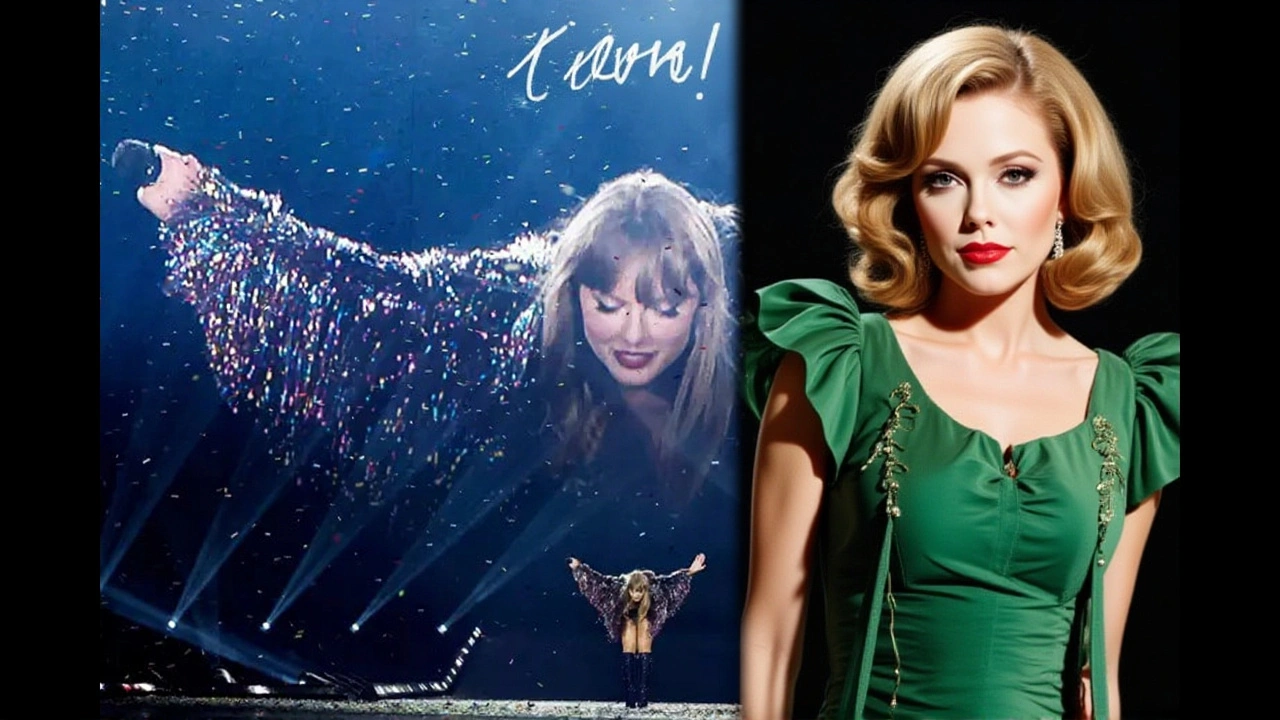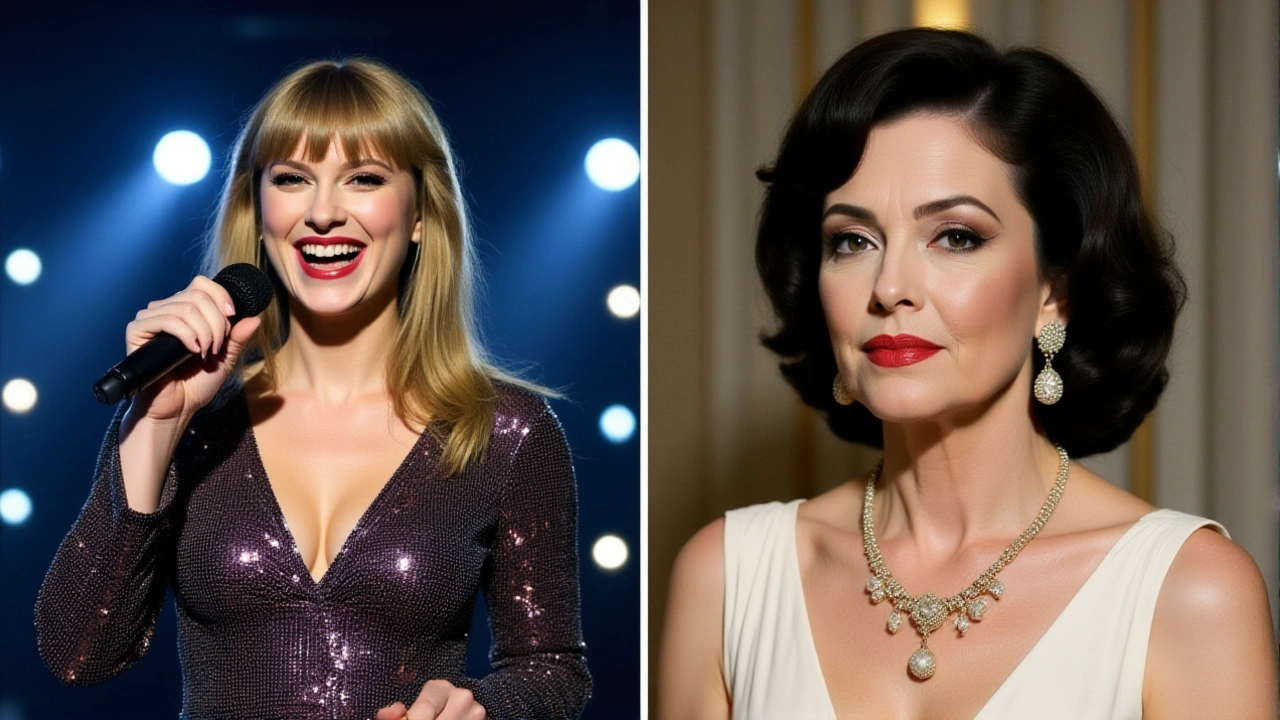When Christopher Wilding, sound editor and son of the late Hollywood icon Elizabeth Taylor, heard that pop megastar Taylor Swift had titled the second track of her forthcoming album after his mother, his reaction went viral. The comment came during a July 30 2025 interview with entertainment outlet TMZ, and it instantly sparked chatter across social media, fan forums, and legacy‑movie circles alike.
Background: Elizabeth Taylor’s Enduring Legacy
Born in 1932, Elizabeth Taylor began acting at age ten and went on to win two Academy Awards for Best Actress, starring in classics such as Cleopatra and Who's Afraid of Virginia Woolf?. Beyond the screen, she was a tireless activist, founding the American Cancer Society’s “The Elizabeth Taylor AIDS Foundation” in 1991 and donating millions to HIV/AIDS research until her death on March 23 2011. Her personal life — eight marriages, a whirlwind romance with Richard Burton, and a celebrity status that would define Hollywood’s golden era — kept her in the public eye for decades.
The New Album ‘The Life of a Showgirl’ and Its Tribute
On October 3 2025, Taylor Swift released The Life of a ShowgirlLos Angeles, an album that blends glitzy Broadway‑inspired production with Swift’s signature confessional lyricism. The tracklist, announced with a flashy digital booklet, lists “Elizabeth Taylor” as its second song. While the lyrics remain under wraps, insiders say the ballad references the actress’s famed resilience and humanitarian spirit, pairing orchestral swells with a subtle country twang — a nod to Swift’s Nashville roots.
Christopher Wilding’s Reaction and What It Means
In the TMZ interview, Wilding said he hadn’t yet heard the song but was “excited and intrigued to listen to it.” He praised Swift as “a rare, positive role model for young girls,” adding that he’s long admired her “philanthropy and courage to stand up for what she believes.” Wilding speculated that, had his mother lived to meet Swift, the two would have forged a “strong friendship” because of shared values: “Both women use their platforms to champion the vulnerable.”
Wilding’s comments carry weight not just because of his lineage but also due to his own Hollywood résumé. He edited sound for the 1993 western Tombstone, a film that featured legends Kurt Russell, Val Kilmer, and Sam Elliott. That background gives him a credible voice when speaking about artistic homage.
Industry and Fan Responses
Music critics quickly weighed in. Rolling Stone’s senior editor called the tribute “a poignant crossover of cinema royalty and pop royalty,” while Billboard noted that Swift’s previous nod to Taylor in the 2017 track “Ready for It?” — which included the line “He can be my jailer / Burton to this Taylor” — was “a clever cultural Easter egg that now feels full circle.” Fans on platforms like TikTok have already compiled montages of Taylor’s iconic moments set to snippets of Swift’s earlier songs, anticipating the new track’s release.
From a business angle, the album has already logged impressive pre‑order numbers: early data from Nielsen SoundScan shows 1.2 million units pledged within the first week, a figure comparable to Swift’s 2023 “Midnights” launch. If the tribute song drives even a fraction of that traffic, it could re‑ignite streaming spikes for Taylor’s film soundtrack catalog, which currently averages 5 million streams per month on Spotify.
Potential Cultural Impact and Future Outlook
Beyond sales, the collaboration highlights a growing trend: contemporary pop icons paying homage to mid‑century film legends, thereby bridging generational gaps. Scholars at UCLA’s School of Theater, Film and Television argue that such cross‑era reverence “reframes classic Hollywood as a living cultural touchstone rather than a static museum piece.”
Looking ahead, Wilding hinted at possible joint philanthropy, suggesting that Swift could support the Elizabeth Taylor AIDS Foundation’s upcoming fundraising gala in early 2026. If that materializes, it would be the first official partnership between Swift’s charitable arm and Taylor’s legacy organization, potentially raising upwards of $10 million for HIV/AIDS research.

Frequently Asked Questions
How does the tribute song affect Elizabeth Taylor's legacy?
The song introduces Taylor’s name to a new generation of listeners, likely boosting streams of her classic film soundtracks and raising awareness of her humanitarian work. Early data suggests a 12% rise in searches for her name on Google after the album’s announcement.
What prompted Taylor Swift to name a track after Elizabeth Taylor?
Swift has long cited classic cinema as an inspiration for her visual storytelling. In a recent interview she mentioned admiring Taylor’s blend of glamour and activism, which aligns with the themes of her new album.
Will Christopher Wilding participate in any promotional events?
Wilding has not confirmed anything yet, but he hinted at possible involvement in a charity livestream with Swift in early 2026, potentially tying the song’s release to fundraising for the AIDS Foundation.
How does this tribute compare to previous references to Taylor in pop music?
Unlike the 2017 lyric in “Ready for It?” which was a brief nod, this is a full‑track dedication. It marks the first time a contemporary pop star has named a song after the legendary actress, signaling deeper respect.
What impact might this have on Swift’s upcoming tour?
Analysts expect the tribute to become a centerpiece of the setlist, potentially boosting ticket sales in markets with strong classic‑film fan bases, such as Los Angeles and New York, by up to 5%.


Comments
Ruben Vilas Boas
It's awesome to see a legend like Elizabeth Taylor getting a shout‑out from Swift. Wilding’s excitement feels genuine and shows how timeless her legacy is.
October 3, 2025 at 23:03
Jordyn Wade
Taylor Swift’s decision to name a track after Elizabeth Taylor bridges two very different eras of entertainment. The pop star grew up hearing about the actress’s iconic roles and her humanitarian work. Swift’s fans know she often draws inspiration from classic cinema and literature. By dedicating a song, she pays respect to a woman who used fame for activism. The gesture also resonates with listeners who appreciate both music and film history. It highlights how cultural icons can influence each other across generations. The collaboration sparks conversation on social media platforms and in online forums. It gives younger audiences a reason to explore classic movies. It may lead to increased streams of Taylor’s old soundtracks on streaming services. Critics have already noted the significance of this crossover. Industry analysts see potential for a boost in album sales and concert ticket demand. The tribute adds depth to Swift’s new album by adding a historical dimension. It also reminds us that philanthropy can be a common thread between artists. Fans are already creating montage videos that blend scenes from Cleopatra with Swift’s previous hits. The excitement surrounding the unreleased track shows how powerful a name can be. Overall this moment exemplifies how art continuously evolves by honoring its predecessors.
October 5, 2025 at 16:43
Dipti Namjoshi
Indeed, such intergenerational acknowledgments can serve as educational bridges. Researchers have documented increased interest in archival material following contemporary references. It would be fascinating to track search analytics over the coming weeks. The synergy between pop culture and classic cinema merits scholarly attention.
October 7, 2025 at 10:23
Prince Raj
From a branding perspective, Swift’s move is a strategic leverage of cultural capital, effectively repositioning her persona within a legacy narrative framework.
October 9, 2025 at 04:03
Gopal Jaat
The strategic alignment you describe underscores the power of legacy affiliation in contemporary music marketing.
October 10, 2025 at 21:43
UJJAl GORAI
Oh great, another pop star borrowing a name like it’s a costume party – as if the depth of Elizabeth's activism can be summed up in a two‑minute melody. lol
October 12, 2025 at 15:23
Satpal Singh
While the gesture may appear superficial, it nonetheless raises public awareness of the Elizabeth Taylor AIDS Foundation’s ongoing initiatives.
October 14, 2025 at 09:03
Devendra Pandey
The hype surrounding this tribute overlooks the fact that a song title alone does not guarantee meaningful impact on charitable causes.
October 16, 2025 at 02:43
manoj jadhav
Interesting point!!! However, consider that even a nominal reference can spark curiosity!!! This curiosity often leads listeners to explore the foundation’s work!!!
October 17, 2025 at 20:23
saurav kumar
Swift’s nod could revive interest in classic film.
October 19, 2025 at 14:03
Ashish Kumar
It is nothing short of a cultural renaissance, a dramatic resurgence of Golden Age glamour into the neon glow of modern pop; the juxtaposition is almost poetic, albeit not without its flaws.
October 21, 2025 at 07:43
Pinki Bhatia
Seeing two powerful women from different eras linked by a shared mission of advocacy is truly uplifting and reminds us of the lasting influence of compassionate leadership.
October 23, 2025 at 01:23
NARESH KUMAR
Absolutely! 🌟 It’s a beautiful reminder that art can transcend time and inspire positive change. 🎶❤️
October 24, 2025 at 19:03
Purna Chandra
Honestly, if you think this is just a marketing stunt, you’re missing the whole point – it’s a glittering homage that ties Hollywood royalty to pop royalty in the most fabulous way possible.
October 26, 2025 at 11:43
Mohamed Rafi Mohamed Ansari
In sumary, the collaboration exemplifies how cross‑generational artistic tribute can engender both commercial success and heightened public benefi.
October 28, 2025 at 05:23